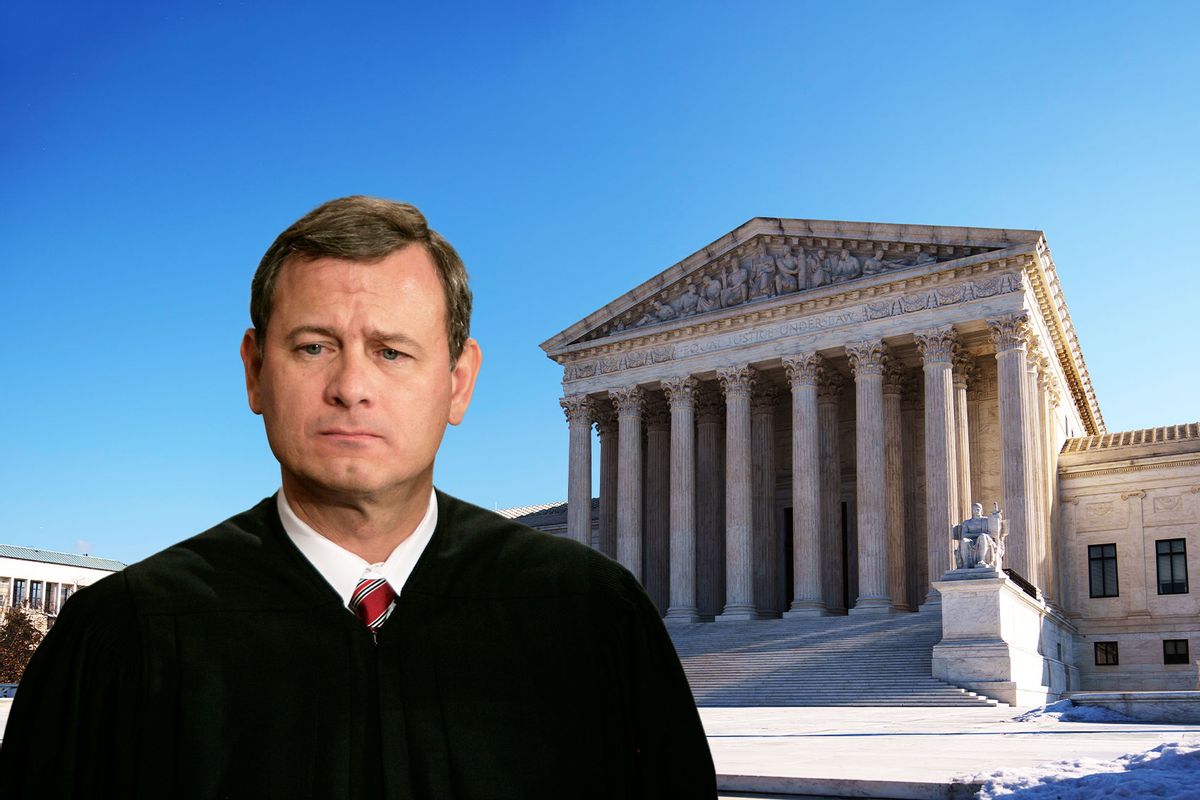Legal scholar: Voting rights ruling “so extreme” that even “radical” Supreme Court may overturn it

A federal appeals court on Monday significantly weakened the Voting Rights Act in seven states, issuing a ruling that would effectively bar private citizens and civil rights organizations from filing lawsuits under a crucial provision of the landmark civil rights law, The New York Times reported.
The U.S. Court of Appeals for the Eighth Circuit ruled that only the federal government could bring a legal challenge under Section 2 of the Voting Rights Act. The appellate court found that “only the attorney general of the United States may bring suit” to enforce the key section of the act.
Should it be upheld, the ruling would drastically weaken what remains of the Voting Rights Act, which was enacted in 1965 to combat racial discrimination in elections.
“The absurdity and extremism of the ruling can be highlighted by posing simple questions: if neither pre-clearance nor private rights of action under Section 2 had been available during, say, the Reagan years, when the DOJ was hardly clamoring to enforce the VRA, how effective would the Act have been,” James Sample, a Hofstra University constitutional law professor, told Salon. “Similarly, how effective would leaving enforcement solely and exclusively to a Trump-appointed Attorney General be in, for example, the 2026 midterms?”
The ruling disrupts the traditional approach to challenging voting rules, where the majority of lawsuits are typically initiated by private voters or organizations like the NAACP or the ACLU. If the ruling is upheld, it has the potential to diminish the resources available to voters of color and voting rights advocates in safeguarding voting access for marginalized groups.
The current case revolves around a challenge initially filed by the Arkansas chapter of the NAACP and the Arkansas Public Policy Panel over a new voting map that took effect in December 2021. The plaintiffs said in their complaint that the newly drawn Arkansas House of Representatives district map diluted the strength of Black voters.
U.S. District Judge Lee Rudofsky, also a Trump appointee, ruled in early 2022 that he was unable to decide on the merits since there was no private right of action. The case may be brought only by the attorney general of the United States, Rudofsky wrote. On Monday, the circuit court affirmed that finding.
“The US Supreme Court has already made the Voting Rights Act Section 5 preclearance nearly impossible under Shelby County, and it has drastically curtailed what voter dilution means under Section 2 via the Brnovich decision,” David Schultz, professor of political science at Hamline University, told Salon.
These two cases alone make it tougher for the federal government to challenge state action, he added. It’s generally harder to identify a violation unless the state or local jurisdiction makes “sudden or abrupt changes” to voting procedures. In effect, the latter allows “slow gradual and small efforts” to make voting more difficult without being subject to legal action.
“Now this decision, if upheld, all but removes private causes of action to challenge VRA violations,” Schultz said. “This is despite decades of precedent that reaches a different conclusion. This is the danger of the textualism that many judges are using. They ignore a major feature of US law that text plus judicial opinion (precedent) is law. They ignore the latter.”
The second and larger issue is that there is a “significant partisan divide” over voting rights now, he continued. In 2008, Schultz argued that we were beginning to witness the “second great disenfranchisement in American history” (the first after the Civil War and Reconstruction).
“The history of the expansion of voting rights in the US does not occur at the state level – historically only when one or more institutions or the federal government comes to the rescue,” Schultz said. “Divided government and partisan differences, and a possible long-term anti-voting rights Supreme Court is not a good recipe for more protection of voting rights, especially in those states with trifectas that support such rights.”
Want a daily wrap-up of all the news and commentary Salon has to offer? Subscribe to our morning newsletter, Crash Course.
Currently, the decision only applies to the states that are covered by the 8th Circuit including Arkansas, Iowa, Minnesota, Missouri, Nebraska, North Dakota and South Dakota. This means it will be more difficult to challenge voting regulations in these states before the 2024 election.
The opinion is almost certain to be appealed to the Supreme Court. Perhaps this Supreme Court could consider claims related to 14th Amendment due process concerning voting rights, or even a new challenge under the 15th Amendment, but this is “a long shot,” Schultz explained.
“Even by the standards of the last decade – hardly a decade that has been kind to voting rights – the Eighth Circuit’s decision is an extreme outlier,” Sample said. “The decision is so extreme that even our contemporary, and historically radical, Supreme Court may seriously consider overturning it.”
Read more
about the right-wing assault on voting rights

